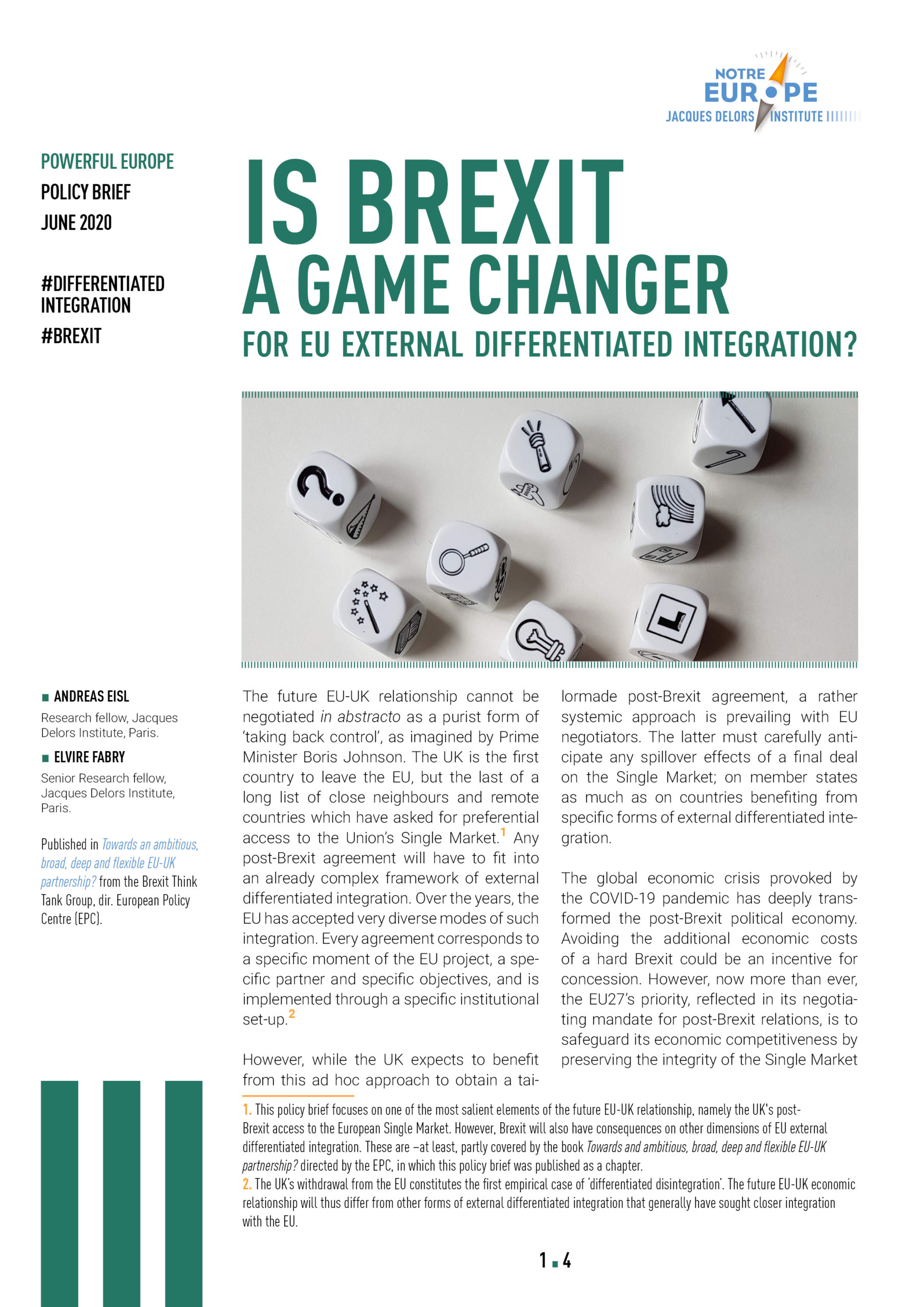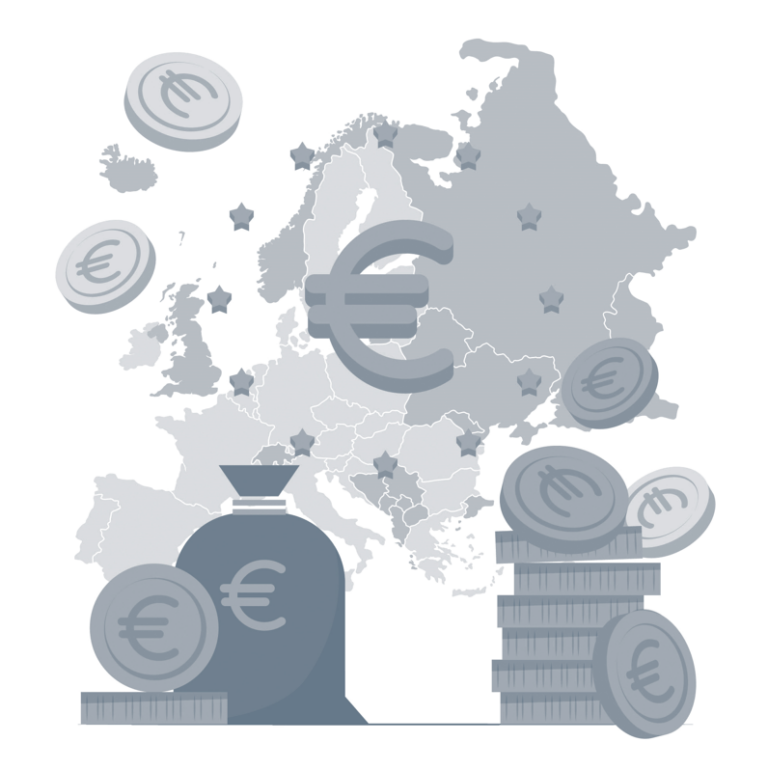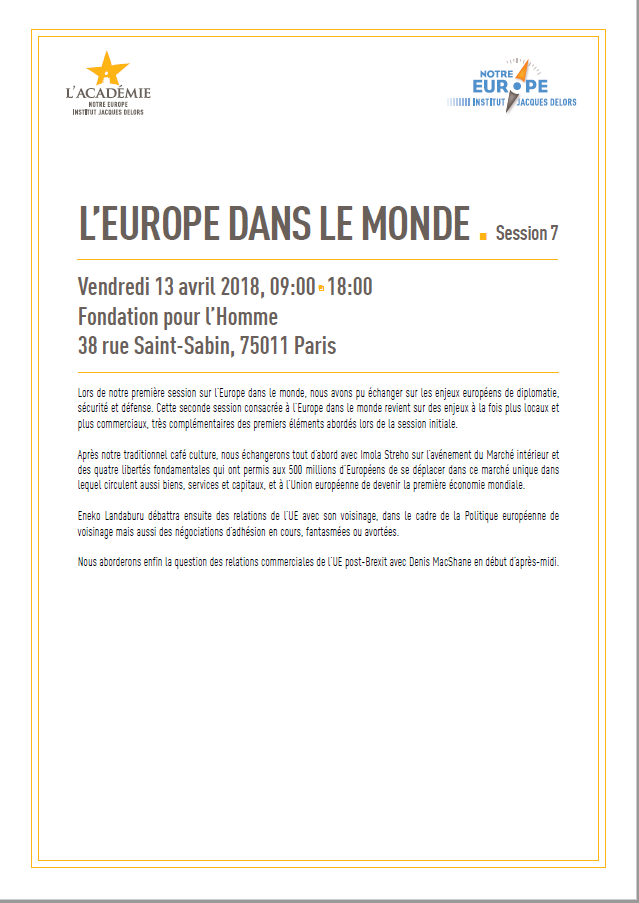Blog post 200623
Is Brexit a game changer for EU external differentiated integration?
By Andreas Eisl, Research fellow, Jacques Delors Institute, & Elvire Fabry, Senior Research fellow, Jacques Delors Institute, Paris.
Published in Towards an ambitious, broad, deep and flexible EU-UK partnership? from the Brexit Think Tank Group, dir. European Policy Centre (EPC).
The future EU-UK relationship cannot be negotiated in abstracto as a purist form of ‘taking back control’, as imagined by Prime Minister Boris Johnson. The UK is the first country to leave the EU, but the last of a long list of close neighbours and remote countries which have asked for preferential access to the Union’s Single Market. Any post-Brexit agreement will have to fit into an already complex framework of external differentiated integration. Over the years, the EU has accepted very diverse modes of such integration. Every agreement corresponds to a specific moment of the EU project, a specific partner and specific objectives, and is implemented through a specific institutional set-up.
However, while the UK expects to benefit from this ad hoc approach to obtain a tailormade post-Brexit agreement, a rather systemic approach is prevailing with EU negotiators. The latter must carefully anticipate any spillover effects of a final deal on the Single Market; on member states as much as on countries benefiting from specific forms of external differentiated integration.
The global economic crisis provoked by the COVID-19 pandemic has deeply transformed the post-Brexit political economy. Avoiding the additional economic costs of a hard Brexit could be an incentive for concession. However, now more than ever, the EU27’s priority, reflected in its negotiating mandate for post-Brexit relations, is to safeguard its economic competitiveness by preserving the integrity of the Single Market and using the full leverage of its economic weight on third countries.
While (i) the EU had launched a review of the various existing differentiated integration agreements even before the 2016 referendum, (ii) Brexit has been an additional incentive to increase EU control over preferential partners. Brexit led to a harder EU stance on unified framework agreements with stronger institutional mechanisms to ensure a level playing field with third countries. From this, it follows that (iii) rather than facilitate differentiation in integration, Brexit might even be a turning point to upgrade the Single Market’s leverage. ▪▪▪
SUR LE MÊME THÈME
ON THE SAME THEME
PUBLICATIONS
Annual Conference of the Jacques Delors Institute

The Unexpected Impact of Prosperity: How the Manipulation of the Consequences of Globalization by the Far-Right Movements Endanger the International Order?

Together we trade, divided we aid

MÉDIAS
MEDIAS
Ce qu’attendent les Britanniques de la nouvelle année

Les 7 tendances à suivre en 2025, selon Enrico Letta

Enrico Letta: «L’épargne des Européens finance des sociétés américaines qui rachètent nos entreprises»

ÉVÉNEMENTS
EVENTS
Euroquestions | What place for Europe in scottish nationalism ? (FR)

The EU-UK deal – A basis to build upon?

Differentiated Integration and the Future of Europe: Promises, Pitfalls, Pathways

Euroquestions | Relance et puissance : mots d’ordre de la rentrée européenne

Negotiating the Future EU-UK Relationship in times of Pandemics

Conférence
Royaume-Uni et Union européenne :
quel partenariat futur ?

Listen to the ECIPE Seminar:
After Brexit – What’s next for EU-UK relations?

Copenhagen, 16 September 2019 – Prospects and Challenges in European Security

San Sebastian, 12th September 2019 – The process of the UK withdrawing from the EU

Brussels, 21 May 2019 – Europe after Sibiu: towards differentiated integration?

Paris, 4 April 2019 – Brexit, a neverending story?

Paris, 18 March 2019 – Europe, what project for today?

Rome, 12 March 2019 – The future of the EU

Lille, 26 February 2019 – Hauts-de-France and the United Kingdom: what future in common?

3 December 2018 – Is Brexit Reversible?

Paris, 11 June 2018 – Round table on Brexit

Louvain, 19 April 2018 – Brexit? Really?

Paris, 13 April 2018 – Notre Europe Academy : Europe in the World

Paris, 4 April 2018 – Brexit : last months of negotiation

Dublin, 28 March 2018 – Brexit and Europe, a political and spiritual challenge

Paris, 15 March 2018 – A year before Brexit: What to do? How to do it?

Brussels, 22 February 2018 – CEPSLab 18

London, 16 February 2018 – Reconnecting the EU with its Citizens

Zagreb, 9 February 2018 – Future of Europe

Paris, 26 January 2016 – Launch of the Colgate Alumni Club of Paris

London, 18 January 2018 – Launch of the Trade Knowledge Exchange

Paris, 8 December 2017 – Academy: Political and Social Europe

Paris, 22 June 2017 – European views on the post-Brexit European Union

Prague, 15 May 2017 – The perspectives and limits of the integration process


















